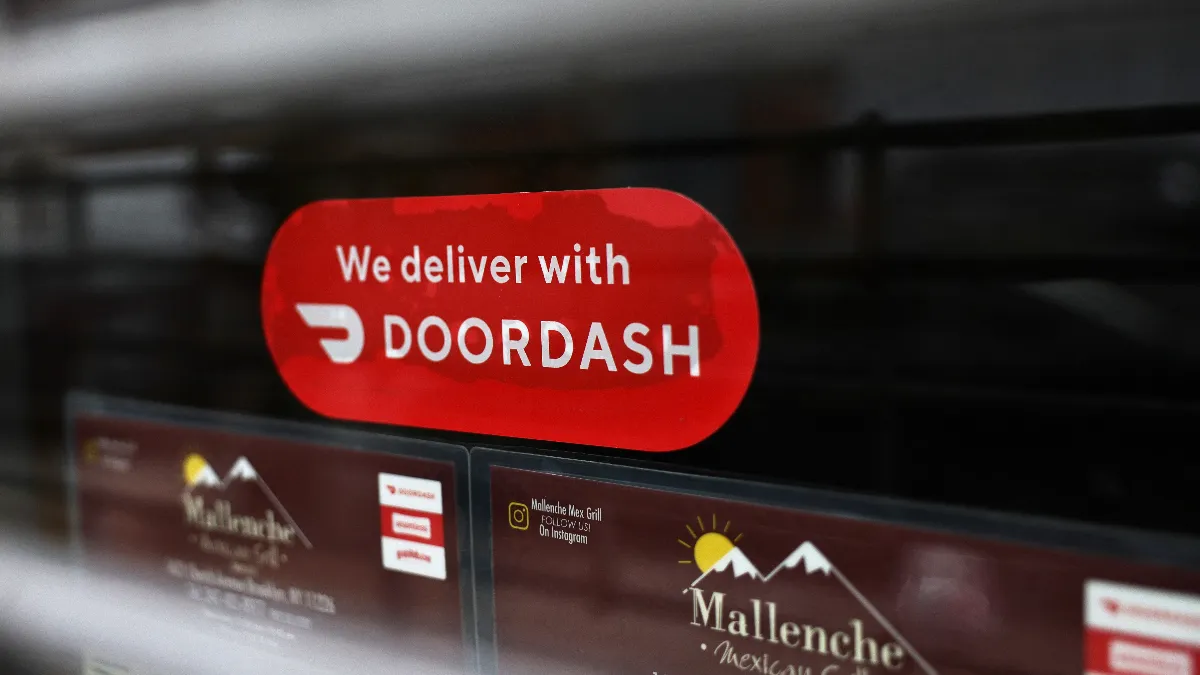Dive Brief:
- New York City’s rule requiring delivery aggregators to share a customer’s full name, email address, phone number, delivery address and order contents with restaurants upon request is unconstitutional, Analisa Torres, a judge in the U.S. District Court for the Southern District of New York, ruled on Tuesday.
- Torres held that the law violated the rights of DoorDash, Uber Eat and Grubhub under the First Amendment to the U.S. Constitution, as the required provision of customer data constituted compelled speech.
- The ruling is a victory for aggregators, but is part of a broader battle over regulation between New York City and the delivery platforms. That fight has seen New York pass delivery fee caps, the subject of a still-ongoing lawsuit by delivery aggregators. The city also enacted a sectoral minimum wage for third-party delivery workers, which survived court challenges.
Dive Insight:
New York City agreed in October 2021 to pause enforcement of the customer data law while the litigation concerning the rule progressed. As a result, Torres’ ruling has little immediate effect beyond formalizing what was already the state of business in the city.
Torres held that some regulations compelling the provision of consumer data would be constitutional, such as a hypothetical law requiring the platforms to treat restaurants equally in providing data, rather than providing it upon request.
The opinion and order issued by Torres also states that the law did not fulfill its stated intent of preventing exploitative or anti-competitive business practices.
Under the law, aggregators “may continue to use customer data to promote competitors. And, the Customer Data Law does not aim at false or misleading statements made by Plaintiffs, even though Central Hudson permits such regulation of commercial speech,” Torres wrote. “The only effect that the Customer Data Law could have on these two practices is to make it more desirable for restaurants, now equipped with data that they could use to target customers, to leave Plaintiffs’ platforms.”
While the urgency of the COVID-19 pandemic has receded, regulatory battles over restaurant delivery continue in statehouses, city governments and courts. In June, for instance, a circuit court ruled that AB 5, a California law requiring gig economy companies to treat their workers as employees rather than independent contractors, was constitutional.
In Florida in April, Gov. Ron DeSantis and the state legislature pre-empted all local regulation of delivery through a law designed with the cooperation of delivery aggregators. Florida’s law requires the aggregators to give restaurants a way to contact consumers during order prep, delivery and for two hours after delivery. That law does not require aggregators to share customer contract information with restaurants. It was designed as a political response to county efforts to force aggregators to share consumer contact information with merchants.
Washington, D.C., in March, passed a bill mandating a city study of delivery working conditions, similar to the New York City law that initiated the rule making process behind that city’s $17.96 wage for delivery workers.












